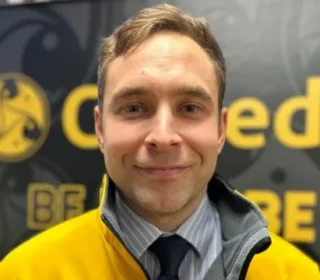In a groundbreaking medical achievement, Aaron James, a 46-year-old military veteran, has made an astonishing recovery after undergoing the world’s first whole-eye and partial-face transplant. The surgery, performed by a team of over 140 medical professionals at NYU Langone Health, has yielded promising results, defying initial expectations.
A New Lease on Life
More than a year post-transplant, James has regained normalcy in his daily life in Arkansas. Despite the transplanted eye not regaining vision, electroretinography tests show a photoreceptor response, indicating surviving light-sensitive nerve cells. This breakthrough offers hope for future whole-eye transplants aiming to restore sight.
Clinical Outcomes and Discoveries
A study published in the Journal of the American Medical Association (JAMA) details the outcomes and discoveries from the past year:
- Normal Eye Pressure and Blood Flow: Contrary to animal model findings, the transplanted donor eye maintained normal pressure and blood flow.
- Electrical Response in the Retina: Photoreceptor response indicates surviving rods and cones.
- No Rejection Episodes: Methodical approach to matching and immunosuppression regimen eliminated early rejection episodes.
Innovative Surgical Techniques and Challenges
The 21-hour surgery employed:
- Microsurgical Techniques: Innovative approaches to reconnect blood vessels and nerves.
- Customized Surgical Devices: Specialized tools for the complex procedure.
- Cell-Based Therapies: Stem cells injected into the optic nerve to enhance regeneration.
Personal Triumphs
For James, the past year has brought:
- Normalcy: No more stares from strangers.
- Enjoying Solid Foods: A simple pleasure regained.
- Sense of Smell: A newfound appreciation.
- Family Milestones: Sending his daughter off to college.
Expert Insights
“Our discoveries mark promising initial results, laying a foundation for further advancements.” – Eduardo D. Rodriguez, MD, DDS, senior author and lead surgeon.
“This procedure could pave the way for new clinical protocols and inspire research into complex transplants.” – Vaidehi S. Dedania, MD, ophthalmologist and retina specialist.
Stay Updated
Subscribe to our blog for the latest medical breakthroughs and research advancements.
Share Your Thoughts
How do you think this medical achievement will impact the future of transplant surgery? Join the conversation in the comments below!

















